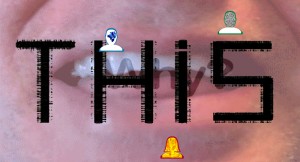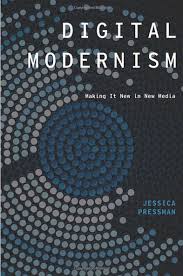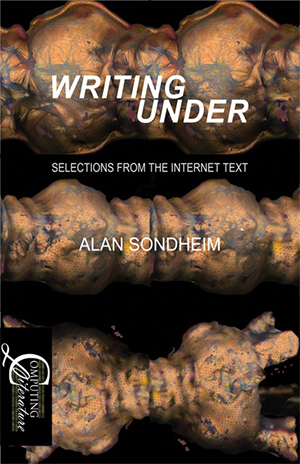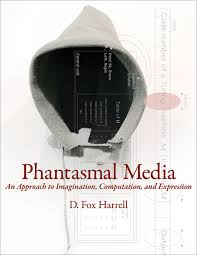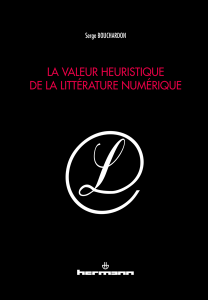 Even as some of us return to our studies, our Summer eReading continues with this French work of scholarship by Serge Bouchardon: La valeur heuristique de la littérature numérique.
Even as some of us return to our studies, our Summer eReading continues with this French work of scholarship by Serge Bouchardon: La valeur heuristique de la littérature numérique.
Based in Paris, Bouchardon has been a long time friend of ELO. In addition to his critical work, his creative works have been celebrated at a variety of ELO events including the recent New Media Gallery in Milwaukee.
Presentation
Literary writing with and for the computer has been around for over half a century. This literature is part of well-known genealogical lines: combinatorial writing and writing with constraints, fragmentary writing, audio and visual writing. Whether it is in the form of hyperfictions, animated poems, generative or collaborative works, digital literary creation is now flourishing, especially online.
Because it is at the intersection of literary, communication, epistemological and pedagogical issues, digital literature is a particularly fruitful object. The heuristic value of digital literature is what allows you to question and reevaluate certain notions (author, text, narrative, materiality, figure, memory…), but it is also what opens up avenues for the field of digital writing.
Biography
Serge Bouchardon graduated in literature from the Sorbonne University (France). After working as a project manager in the educational software industry, he wrote his dissertation on interactive literary narrative and is currently Professor in Communication Sciences at the University of Technology of Compiegne (France). His research focuses on digital creation, in particular digital literature.
As an author, he is interested in the unveiling of interactivity. The creation Loss of Grasp (http://lossofgrasp.com/) won the New Media Writing Prize 2011.
Research: http://www.utc.fr/~bouchard/
Creation: http://www.sergebouchardon.com/


